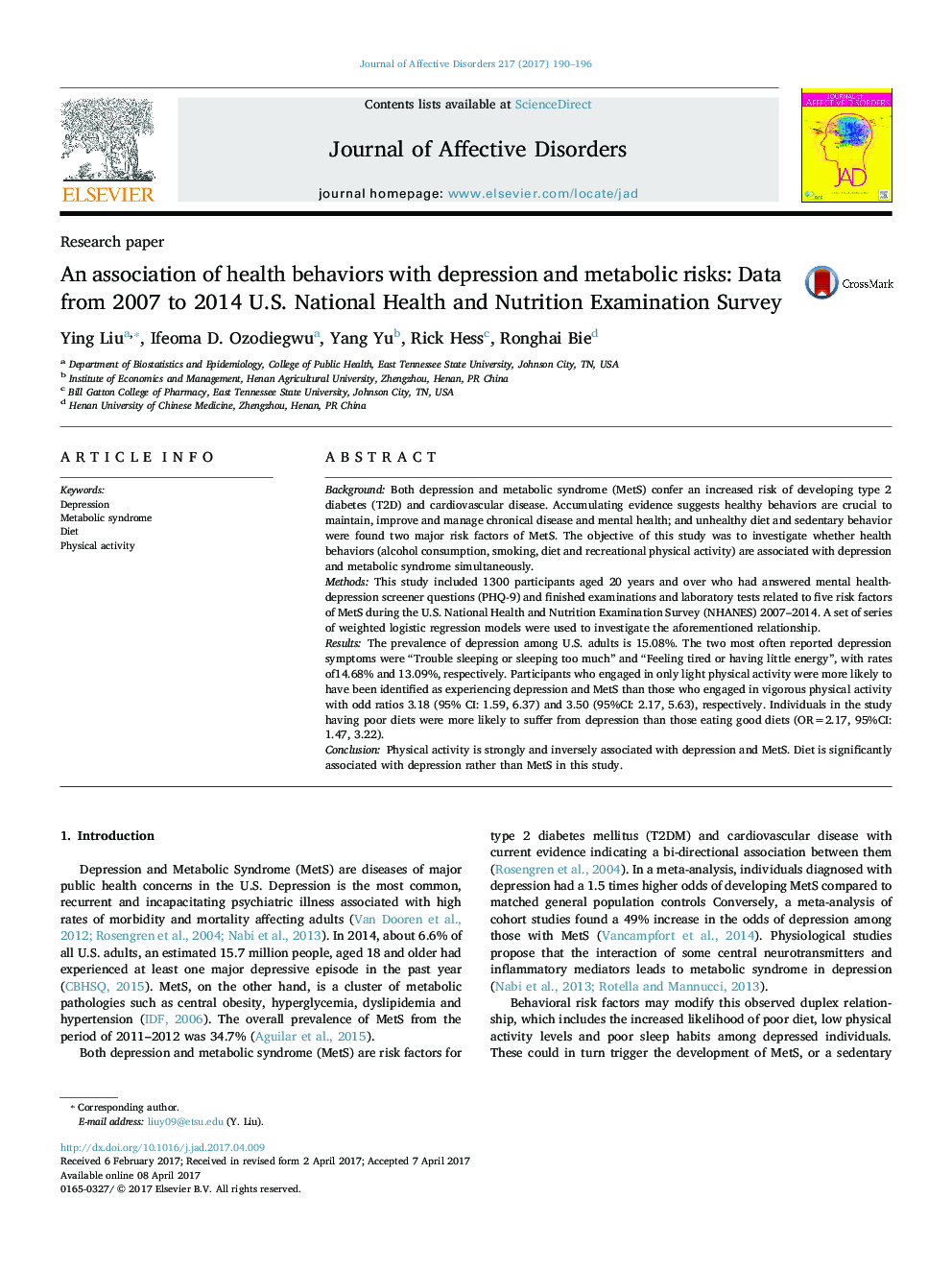| کد مقاله | کد نشریه | سال انتشار | مقاله انگلیسی | نسخه تمام متن |
|---|---|---|---|---|
| 5722200 | 1608108 | 2017 | 7 صفحه PDF | دانلود رایگان |
- Up-to-date data was used to report prevalence of depression and MetS in US adults.
- The physical activity intensity is significantly associated with depression and MetS.
- Association directions indicated the direction of campaign in the near future.
BackgroundBoth depression and metabolic syndrome (MetS) confer an increased risk of developing type 2 diabetes (T2D) and cardiovascular disease. Accumulating evidence suggests healthy behaviors are crucial to maintain, improve and manage chronical disease and mental health; and unhealthy diet and sedentary behavior were found two major risk factors of MetS. The objective of this study was to investigate whether health behaviors (alcohol consumption, smoking, diet and recreational physical activity) are associated with depression and metabolic syndrome simultaneously.MethodsThis study included 1300 participants aged 20 years and over who had answered mental health-depression screener questions (PHQ-9) and finished examinations and laboratory tests related to five risk factors of MetS during the U.S. National Health and Nutrition Examination Survey (NHANES) 2007-2014. A set of series of weighted logistic regression models were used to investigate the aforementioned relationship.ResultsThe prevalence of depression among U.S. adults is 15.08%. The two most often reported depression symptoms were “Trouble sleeping or sleeping too much” and “Feeling tired or having little energy”, with rates of14.68% and 13.09%, respectively. Participants who engaged in only light physical activity were more likely to have been identified as experiencing depression and MetS than those who engaged in vigorous physical activity with odd ratios 3.18 (95% CI: 1.59, 6.37) and 3.50 (95%CI: 2.17, 5.63), respectively. Individuals in the study having poor diets were more likely to suffer from depression than those eating good diets (OR=2.17, 95%CI: 1.47, 3.22).ConclusionPhysical activity is strongly and inversely associated with depression and MetS. Diet is significantly associated with depression rather than MetS in this study.
Journal: Journal of Affective Disorders - Volume 217, 1 August 2017, Pages 190-196
